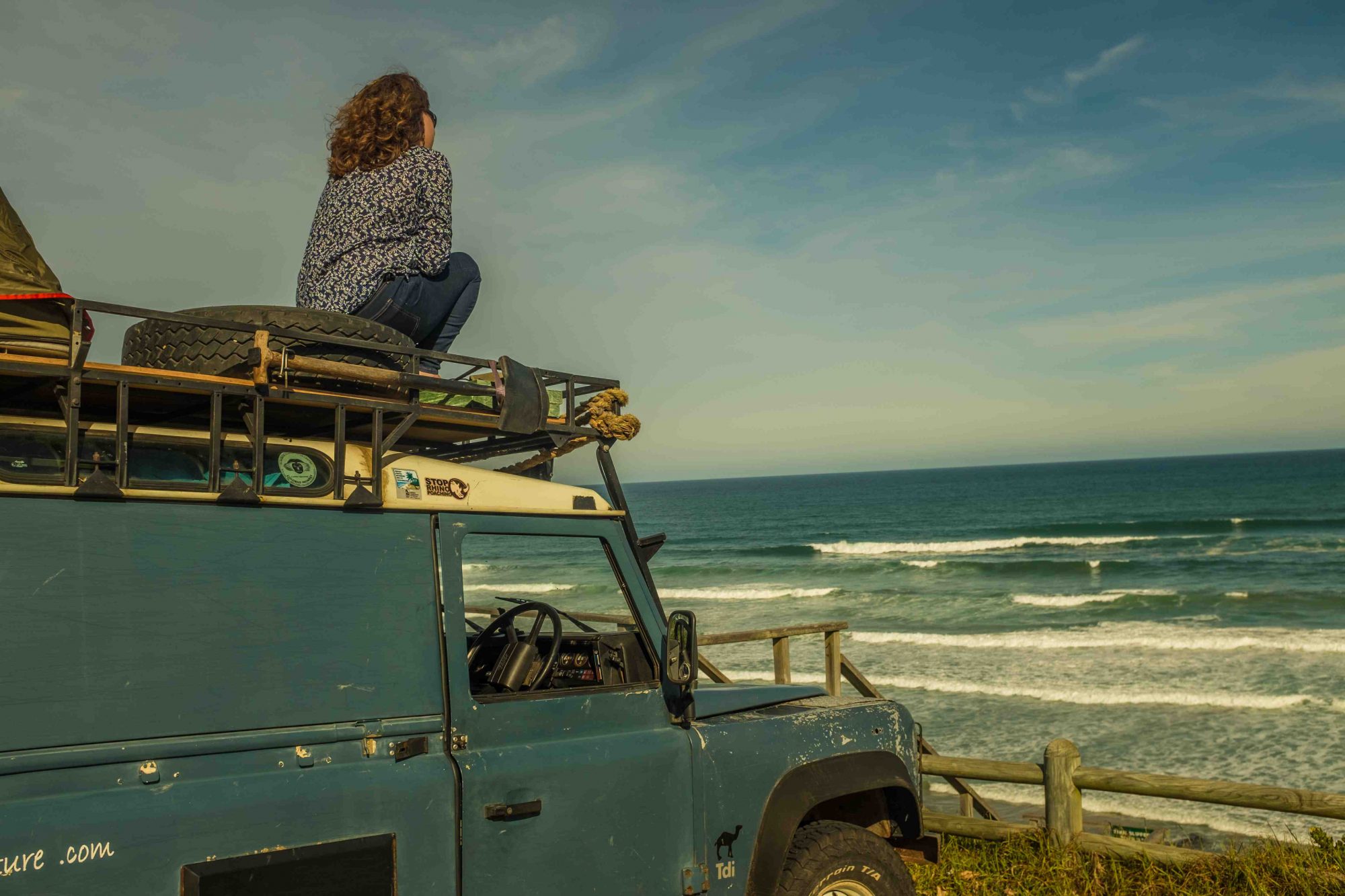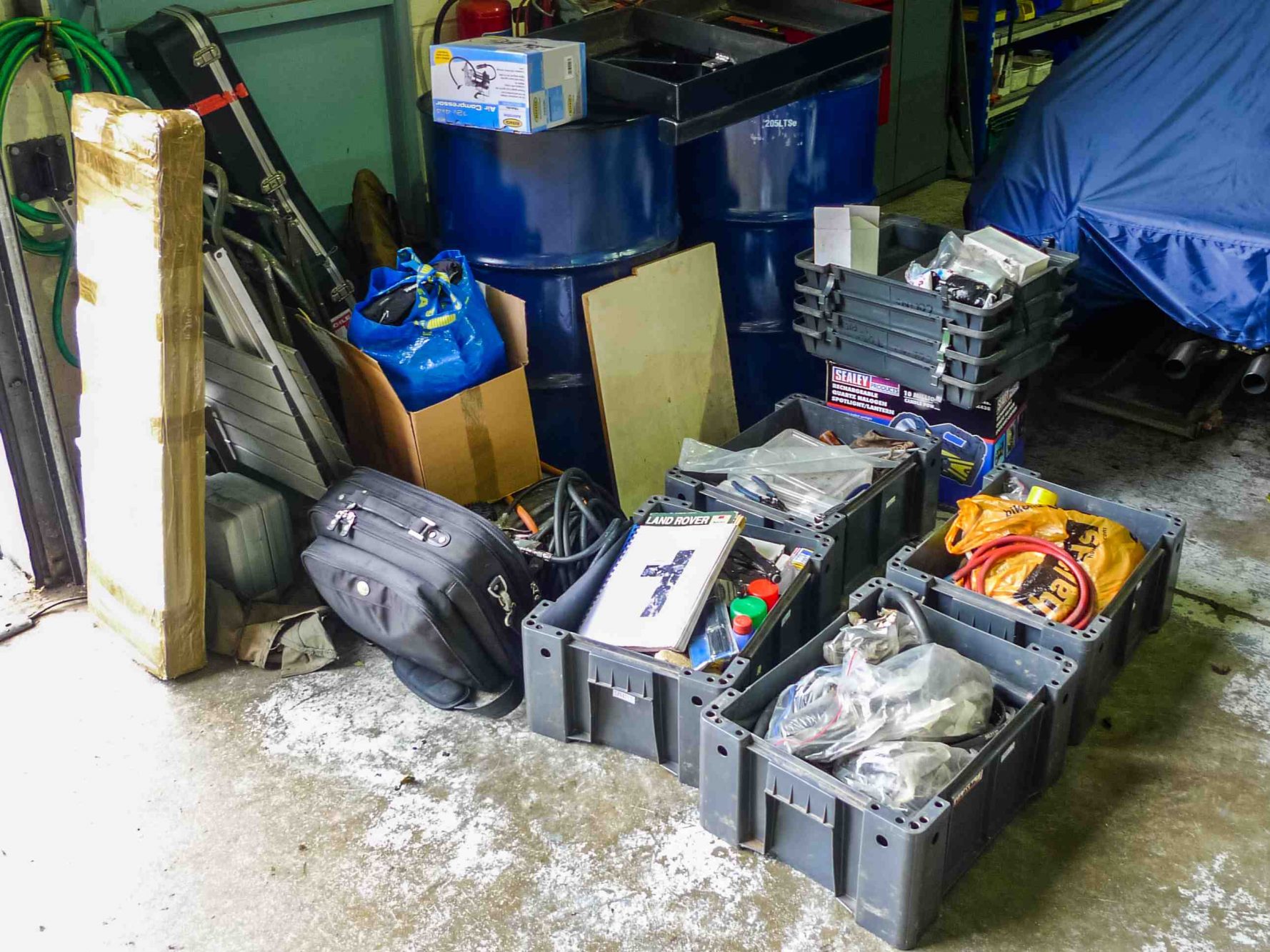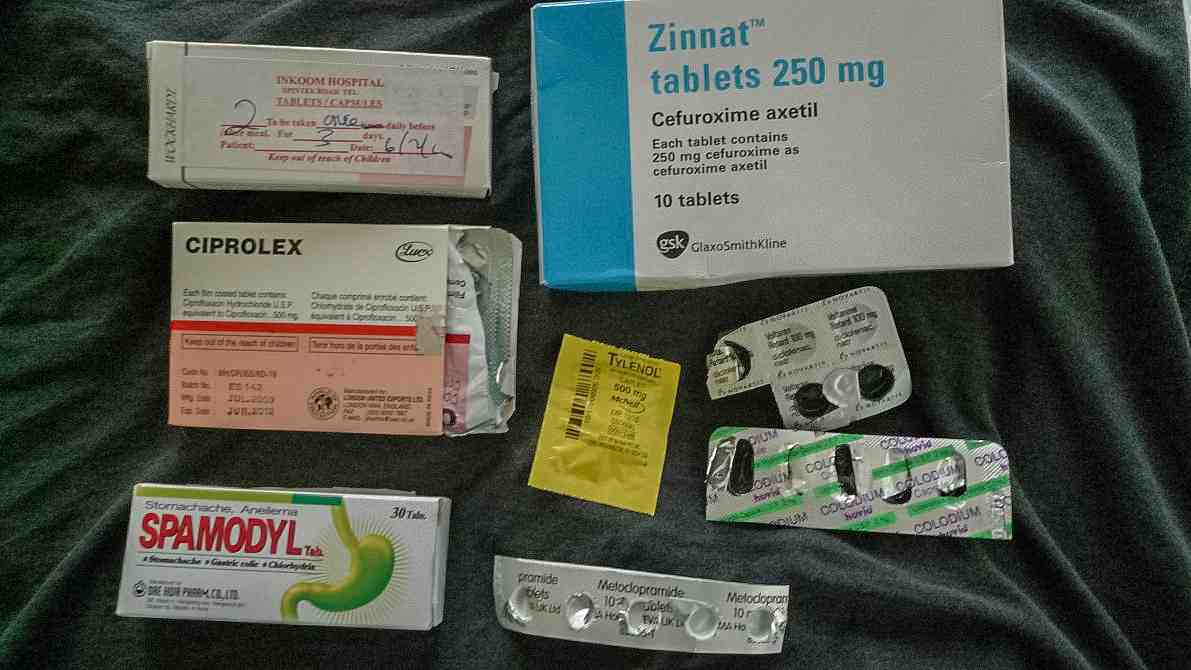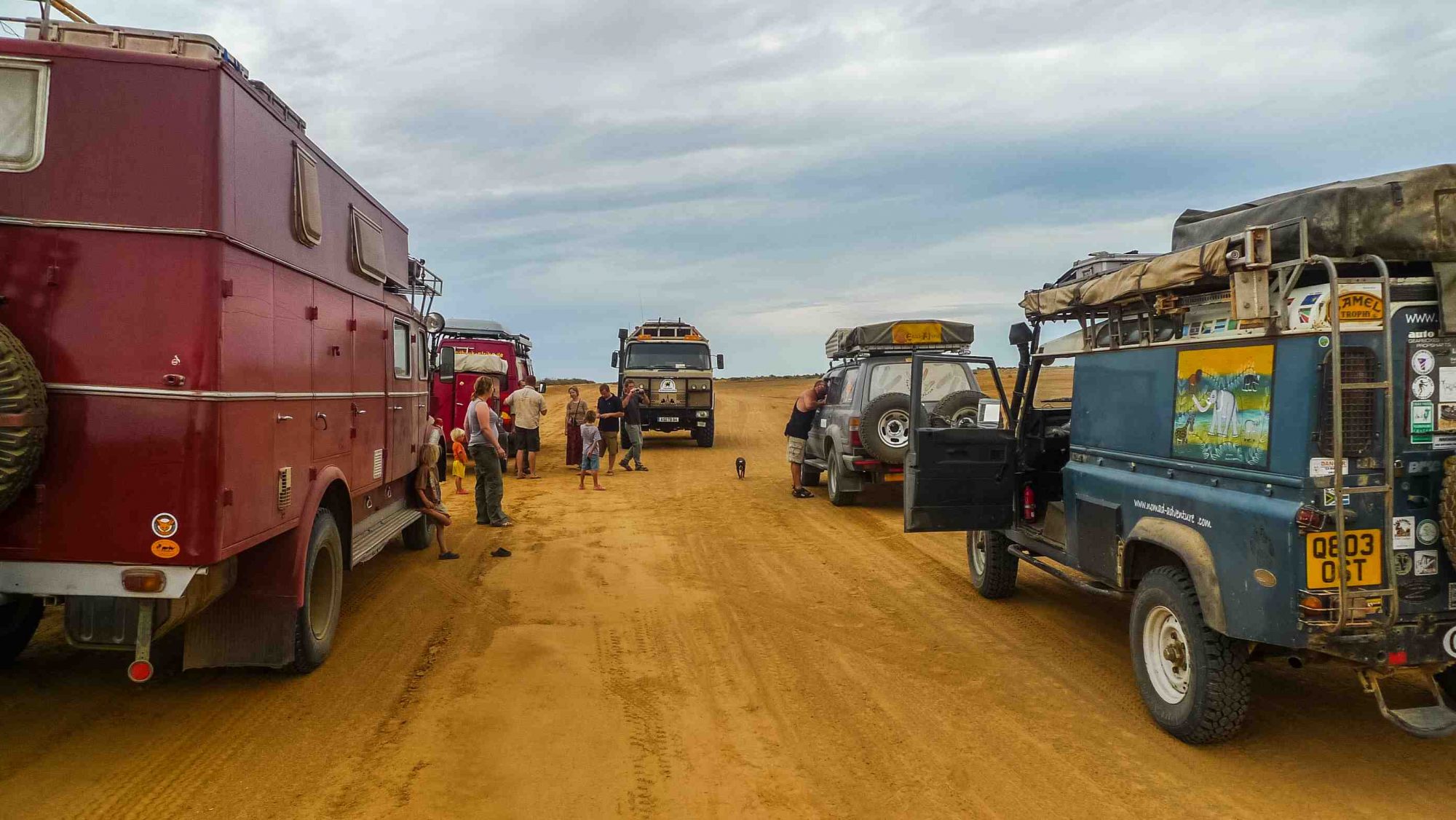Deciding to take a year off to travel through 20+ African countries requires considerable preparation to ensure a smooth journey and to avoid situations that could derail our plans, temporarily or entirely. For those of our readers who may be thinking, “how on earth can you travel through so many countries,” or “you must be completely nuts,” here are some tips for preparing for a successful overland journey in Africa, whether you’re traveling through two countries or dozens!

Find a vehicle that will get you there… eventually
I’m not a car expert. And let’s face it, I married a Land Rover enthusiast. We concede that Land Rovers aren’t well known for their reliability, and Maggie has certainly been known to break down. But what she lacks in mechanical soundness, she makes up for in character and a sense of adventure. Surely, there’s nothing more satisfying than cruising into a new town in Africa’s most iconic overland vehicle, and the more time you spend broken down the more time you have to enjoy a place, right?
Maggie is a Land Rover Defender 200tdi, and her 1991 model means that she’s part of the old generation of Land Rovers that can quite literally be fixed anywhere with duct tape and some chewing gum. Most of her parts are so simple that we’ve had mechanics DIY us new parts that are not available, blacksmith style, with a hammer and a torch.
So Maggie fulfils the most important check box: she’ll get us there… eventually. With a lot of patience, and a lot of break down stories to talk about. However, there are plenty of other legitimate choices (the Land Rover Discovery and the Toyota Land Cruiser, to name two) that some people may claim to be more reliable. But don’t tell Noel I said that.

Be prepared, but don’t plan too much
You got that right – throw caution to the wind and throw those itineraries away! Embarking on a trans-continental journey is a gutsy decision. Embrace it. You’ll face situations you cannot possibly plan for, although with preparation you may be able to anticipate and handle with flexibility. The most important thing to thrive and survive on an overland journey, is to be prepared and well-informed, but to leave plenty of time for getting distracted and delayed by the unknown. (And for breaking down if you’re in a Land Rover!)
Don’t get us wrong, we’re not saying don’t do your research. Do at least some research, but don’t plan or book anything too far in advance. In other words, make sure you have checked into what it will take to get you and the vehicle across the border, but be aware that things could change at a moment’s notice, or what is on paper is not followed in practice.
In our experience, you’ll learn a lot from talking to locals about where and how to go than a million guide books or blogs could ever tell you. Maybe you thought you would never want to set foot in Zimbabwe, but you actually found that it has some of the friendliest people you’ve ever met. Perhaps that national park you think will be fantastic will be a huge bore (‘woo, more zebra’). Or maybe that sea-side village that Lonely Planet says nothing about is where you will have a mind-blowing, horizon-expanding, can’t-wait-to-write-home-about-this experience.
But you may never be able to enjoy all the surprises that will make the journey truly incredible if you itinerary is too full and rigid.
Take essentials, and leave the kitchen sink at home
Contrary to what your mother might think, you are not being air dropped into a war zone, or the middle of the Sahara desert. In all likelihood, you will be able to find everything you need, and more, in major towns and cities along the way.
One of Noel’s biggest regrets on his first journey was taking way too much stuff with him.

Noel’s original kit list included: no less than 5 20-litre water canisters, for a maximum capacity of 100 litres (26.5 gallons); two suitcases full of clothes, wooly hats and winter jackets; 20 pairs of sunglasses, a 20-lb beast of a first aid kit, and a portable shower. All of which he eventually gave away to people he met along the way. If you’ve got too much going on in the vehicle, you’ll experience more cons (hassle trying to get to it, and to keep it clean and organised) than you will ever experience pros. And the weight of it will slow you down and burn more fuel.
Our advice: keep it minimal and practical.
Get a bank account that doesn’t charge to withdraw money
Unless you plan on carrying trillions of Zambian kwacha in suitcases, you are going to need to withdraw money at some point. Ok, probably many, many times, and most banks charge a flat fee plus a percentage of the cash withdrawn, which can add up to thousands of wasted Kenyan shillings. So having a bank account, travel money card and/or credit card that lets you withdraw money without fees, or with reduced fees, will be well worth the investment.
Do such accounts exist? Indeed, they do. In the UK, I recently opted for the Norwich and Peterborough Building Society Gold Classic account, with no foreign withdrawal or transaction fees, and the Halifax Clarity Card, also with no fees (but interest charged for withdrawing cash, at the time of writing). There are also plenty of options for my fellow Americans. Noel also advises bringing some modest cash reserves or emergency traveller’s cheques – both US dollars and another major currency, such as Pounds or Euros, as some countries have preferential exchange rates for one currency over others. You may not always be close to a working ATM.

Find a good long-stay travel insurance policy
I’m a worrier, and the kinds of travel mishaps that good travel insurance policies cover are exactly what keep me up at night. What if we have an accident? What if the doctor runs out of anti-venom? What if we get stranded while hiking Kilimanjaro? What if we get mauled by hyenas? What if the airline loses our bags?
Although not as popular as ‘ordinary’ travel insurance policies, many companies offer ‘long stay’ or ‘backpacking’ policies that are specially designed for overlanding-type adventures. Our advice: don’t just go for the cheapest you can find. Find a policy with a reputable company with a strong customer service and track record. Good insurance is an investment, and you’ll thank yourself a million times if you ever need to use it.
You can take as many precautions not to get ill but it could happen.
Noel has now completed two overland journeys and has unfortunately added Typhoid and Malaria to his ever-expanding list of collected tropical diseases. In both situations, he had tried to take precautions as much as possible but when he got ill the most important thing was getting him to a doctor as soon as possible. In most major cities in Africa you will be able to get access to private hospitals and be looked after (at a cost). Once bed ridden, the key was to rest as much as possible with the correct medication and only consider moving on after a full recovery.

Check into border crossing requirements
Although applying for visas in advance is often optional, it’s good to have an idea of the countries that might present difficulties in the visa department. Of course, with some passports, visas may be 100% straight forward. However, even with the best of the best of passports, there is likely to be at least one immigration officer along the way who tells you that you must go back to the London embassy to apply for a visa before you can enter his country.
Border crossing for your vehicle may present similar challenges – the solution is the carne de passage. Like a car passport, a carnet is required for foreign vehicles in a handful of African countries, and recommended for many.

Those are just a few tips and things learned on the road. Read more stories by clicking on the banner below:



